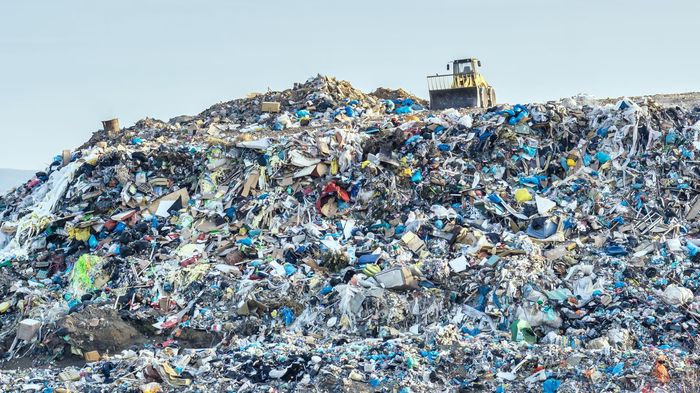…says Kosofe LG’s underground water loaded with dangerous pathogens
Laide Raheem, Abeokuta
The Society of Testing Laboratory Analysts of Nigeria (SoLTAN) has called on the Lagos State Government to relocate dumpsites located within the residential areas to prevent spread of diseases and protect public health.
SoLTAN made this call in a communique issued on Thursday evening at the end of the 7th Conference of Public Analysts (COPA) 2025, held in Abeokuta, the Ogun State capital.
The conference was themed “The Role of Public Analysts in Tackling
Climate Change for Food Security”.
In the communique signed by Prof Adedayo Olajide Ajayi, Mr Fagbohun Adebisi, Mrs Chinwe Kelechukwu and Mr Francis Akinsola Oyekanmi, chairperson, secretary and members, respectively, the Society, warned that the state risks serious environmental pollution capable of causing diseases and health hazards, if the dumping sites are not relocated from their present locations.
It, however, expressed worries that the Kosofe Local government’s underground water is heavily loaded with dangerous pathogens and heavy metals coupled with odour as a result of leachate from various dump sites within the communities.
SoLTAN observed that the climate change got more pronounced with gross environmental pollution, emphasizing the need by Lagos State to take pragmatic steps to address the issue of dumpsites in residential areas and other environmental matters to prevent heavy flooding and gross environmental pollution.
While noting that climate change has brought untold hardship to farmers and the community at large through flood, drought, rise in temperature, rainfall variation, coastal erosion and salt water intrusion which have a negative impact on soil condition, the Society bemoaned lack of comprehensive data to resolve the problem of climate change in the country.
It also decried failure of the government to involve public analysts in some vital decisions and policy making in Nigeria, arguing that public analysts need to be enlisted in various government’s technical committees relating to climate change, food safety and surveillance.
It declared further that Nigeria has fewer laboratories that can handle micro-nutrients as well as fewer rapid laboratory testing instruments to test contaminants in the country, urging the Federal Government to invest in state-of-the-art modern equipment for analysis.
The equipment, according to the communique include Gas Chromatography Mass Spectrometers (GC-MS), High Performance Liquid Chromatography (HPLC), Inductive Coupled Plasma Optical Emission Spectrometer (ICP-OES), Block chain technology and Biosensors.
Meanwhile, SoLTAN called for adequate and comprehensive policies to drive the National Agenda on food security to combat food insecurity in the country.
It, however, submitted that the government should establish adequate storage facilities across the country to prevent post-harvest losses, most especially perishable foods.
Presenting a paper entitled: ‘The Role of Public Analysts in Monitoring Food s
Safety Amid Climate Change: Exploring how Public Analysts can ensure food safety standards are maintained in the face of climate-relates changes’, the immediate past president of the Society, Dr Laoye Oluwafemi Oyediran, highlighted the roles of public analysts in ensuring food safety, urging people to be mindful of what they eat,
On his part, the president of SOLTAN, Prof. Olugbenga Ogunmoyela, expressed concerns about uncertified analysts carrying out analysis, a situation he said has impacted negatively on food and environmental assessment reports.
Professor Lateef Sanni, the Executive Director, Nigeria Stored Products Research Institute, Ilorin, Kwara State, said “Climate variability is no longer a theory. Therefore, a public analyst has a critical role to play”.
“The first critical point is the quality of analysts being turned out. Another one is that government regulatory agencies must be conscious of merit when they recruit their staff, especially the analysts. Any wrong analysis by incompetent analyst will spell doom for the people. Therefore, I am calling for more competent analysts to be recruited by the regulatory agencies. Nigeria has several regulatory agencies which have competent hands, but lack of implementation of various reports and results by the relevant authorities, have caused a lot of problems in the country.
“Nigeria lacks institutional arrangement to protect some of the laid down quality standards and procedures”.


